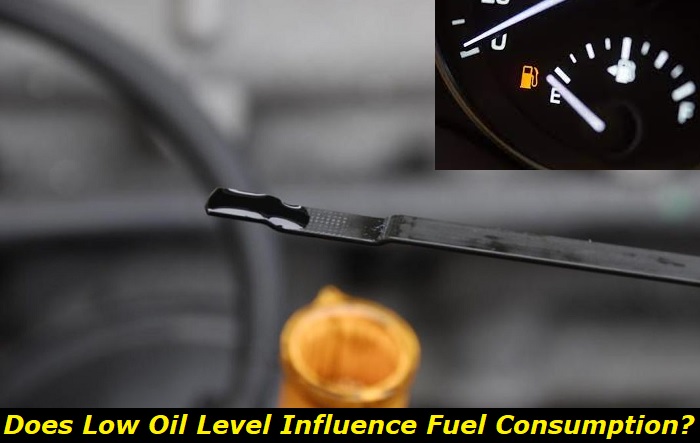The vehicles that we drive are powered by combustion engines. This is, of course, with the exclusion of the EVs. The car you drive has a combustion engine that produces torque power which is then transmitted to the wheels via the tranny. There are numerous components that should be in motion for the engine to operate optimally.
Oil level problems highlights
- Level of urgency:medium
- Average mileage:not related to mileage
- Repair cost:$5 - $550
- DIY repair:yesbutmaybe complicated
- Commonreasons:overfilled oil, coolant leaking into oil, gas leaking into oil
- If ignored:fatal engine damage, catalytic converter damage
- How to solve:add oil or pump it outdependingon the nature of the problem

What is the importance of oil in the engine?
When you pour oil into the engine, it goes all the way to the sump, where it sits in readiness for action. When you start the engine, the oil pump goes into action and pumps oil to the components that require it. The main bearing is one of the components that must be lubricated to ensure the pistons move up and down smoothly. The crankshaft must be thoroughly lubricated to ensure the main bearings work as required. The camshaft must also be oiled to ensure the valves and the tappets operate seamlessly.
Engine oil presence makes it possible for the different engine parts to operate. The other function of oil is to reduce heat in the engine. If there is no oil in the engine, the friction in the engine will be extreme such that it is even possible for a fire to start.
As the oil flows throughout the engine, it collects debris and losses its viscosity making it necessary to change it regularly as advised by the engine manufacturer. It is not rare to see oil dripping or sweating from the undercarriage. When this happens, the oil system is leaking, and the amount of oil in the sump is dropping. Other times, the oil might leak into the combustion chamber, mostly because of failed piston rings. When this happens, the oil will mix with the air-fuel mix and be part of the combustion materials. At the end of the day, the correct amount of oil of the right type must be used to ensure a particular engine operates as designed.
Can low oil level cause bad gas mileage?
Low engine oil level causes a lot of stress on the components responsible for fuel combustion and generation of torque. The engine components are forced to work twice as hard, making energy be split between moving the vehicle and powering the engine parts. This means powering these unlubricated parts, and the transmission will force the engine to overstretch, making it overheat.
Veteran drivers have noted that engine oil drops a few millimeters on the dipstick before the next due service. Moreover, the engine's performance is a tad slower, just before an oil change. If you fail to service your car as required, the gas consumption deteriorates. This is because the oil loses its lubricating properties as it ages, plus there might be impurities in the oil which will prevent it from working as new. Mind you, this happens despite the vehicle having no defect.
The remedy to this problem is to ensure you regularly take your vehicle for service. Your vehicle's manufacturer has specified the time intervals at which you should do an oil change. You should also make sure you use the prescribed oil. Using the correct oil ensures the engine parts are optimally lubricated and the engine efficiency is prime; hence the gas consumption will be ideal.
What else happens when the oil level drops?
Excessive friction leading to wear and tear - Low oil level in the engine means there will be excessive friction for moving engine components such as the pistons and the crankshaft. When such friction happens, the metal will start grinding against metal, causing premature wear and tear. Overall, such an engine will not last for years but months, if not weeks.
- Engine power reduces - The engine performs optimally because all the engine parts function effectively. However, a low oil level makes the moving parts strain or stall, affecting the overall engine performance. The vehicle's acceleration will drop, and its overall performance will deteriorate to a point when its speed drops to a crawl.
- Engine overheating - The moving engine parts operate under stress because of a lack of lubrication. Due to friction, heat is generated, which makes the body and head gather heat. The cooling system is designed to cool the engine when all other parts operate optimally. Because of the excessive friction and the failure of the cooling system to tame this heat, the engine ends up overheating. This can very easily lead to engine stalling and getting totaled.
- Rust and corrosion - Oil has a protective layer that keeps rust away. A metal part with oil won't corrode. However, a low engine oil level means there are engine parts where the oil won't reach. Over time, rust will build up and eventually make the engine inoperable.
- Engine failure - When the engine parts are subjected to an impossible operating environment, they will fail. When the head becomes so dry that the pistons cannot move or the crankshaft cannot rotate, the engine will break down. When this happens, you will likely be slapped with a huge repair bill by the mechanic. It is also possible that the engine needs to be replaced.
- Warped head and damaged crank - When the engine is left to operate with low oil, the engine head, which is made of aluminum in most cars, will warp. The warping of the head causes the seal offered by the head gasket to break, which leads to low tension and several other problems. The crank will get damaged and will no longer be able to turn. If you are lucky, you might only replace the damaged parts, but in most cases, you will be required to replace the entire engine. Sometimes, a new engine is not viable, but buying another vehicle might be.
What causes the oil level to drop?
Low engine oil level is something every driver should avoid. There are instances, however, when the oil level may drop, and you should be ready for such instances. Catching decreasing oil levels in time can save you a lot of money. Here are the reasons why the engine oil level will drop
1) Oil leak
A leak is the most likely cause of dropping engine oil. There are several points where the oil might leak, starting with the sump seal. An improperly fitted head gasket can cause oil leakage, as are several engine parts. It is easy to notice the problem as you will find drops where you had parked the vehicle.
2) PCV valve is worn out
The positive crankcase ventilation (PCV) is a critical engine part mandated to remove harmful gases made during combustion in the engine. The PCV routes excess exhaust gases back to the combustion chamber. If it fails, it causes oil blowback, where the oil gets sucked back into the engine via the air intake. To correct this problem, you will need to replace the PCV.
3) Worn-out valve seal
Valve seals regulate oil consumption and lubrication. A damaged valve seal will leak oil into the engine cylinders and the combustion chamber. It should be replaced if discovered to be faulty.
4) Worn-out piston rings
The piston has three rings that perform a number of functions. Because of the countless times the piston moves up and down the chamber, it needs to be thoroughly lubricated while at the same time ensuring oil doesn't leak into the combustion chamber. Worn-out rings will allow oil from the main bearing area to seep into the combustion chamber. You will need to dismantle the engine and replace the rings and probably the head gasket.
Conclusion
The engine should be adequately lubricated to enable it to perform as expected. As observed, a low engine oil level is dangerous and can cost you a lot of money. No matter how the oil has escaped, you must endeavor to arrest the situation as soon as possible. Besides making the vehicle consume more fuel than it should, you may end up with a large mechanic bill or even be forced to buy a new car because of the low engine oil level.
The risk of operating a vehicle running on low oil is enormous. Besides risking making your vehicle a source of used car parts source, the insurance cover and the warranty will become void. To avoid low oil levels, check with the dipstick regularly and service the engine as the manufacturer has advised. You will find all this information in your car's user manual, which can be physical or downloaded.
About the authors
The CarAraC research team is composed of seasoned auto mechanics and automotive industry professionals, including individuals with advanced degrees and certifications in their field. Our team members boast prestigious credentials, reflecting their extensive knowledge and skills. These qualifications include: IMI: Institute of the Motor Industry, ASE-Certified Master Automobile Technicians; Coventry University, Graduate of MA in Automotive Journalism; Politecnico di Torino, Italy, MS Automotive Engineering; Ss. Cyril and Methodius University in Skopje, Mechanical University in Skopje; TOC Automotive College; DHA Suffa University, Department of Mechanical Engineering






Add comment